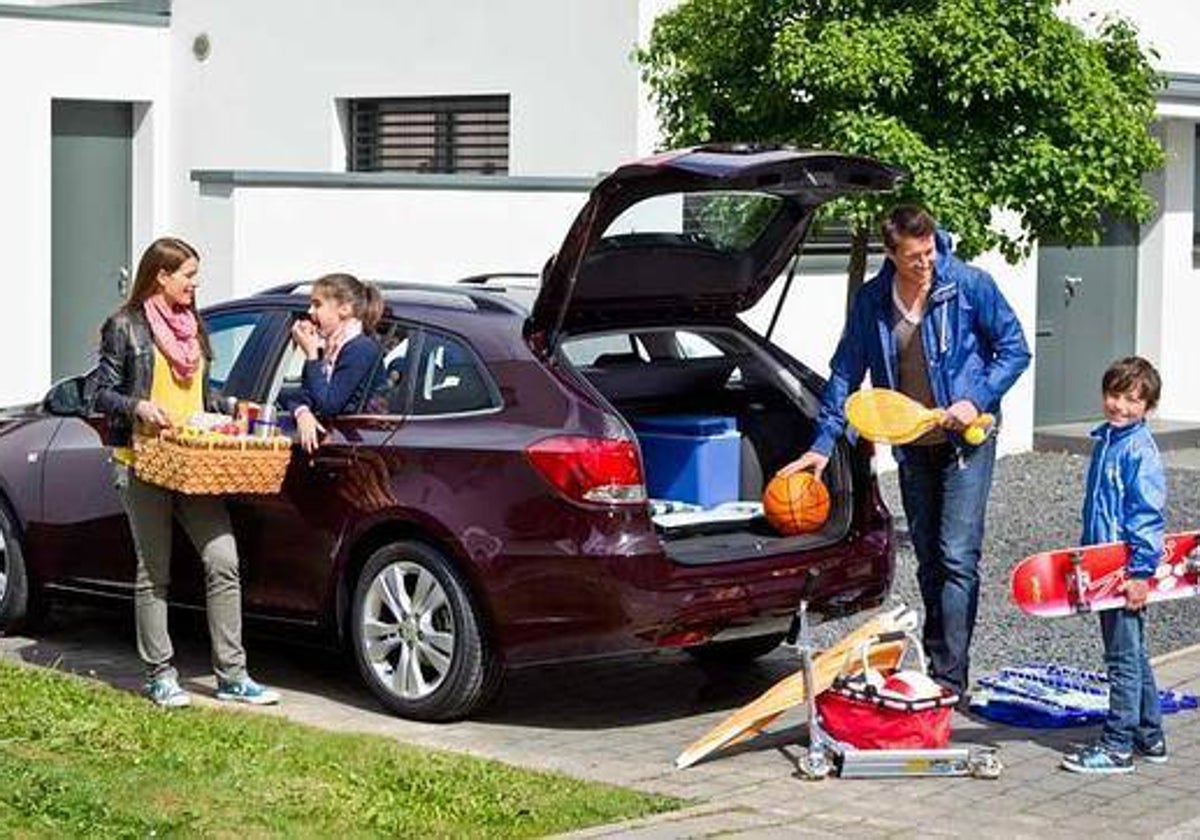

Sections
Services
Highlight

A.P.
Jueves, 5 de septiembre 2024, 09:05
The end of the summer holiday period brings a significant increase in traffic on roads across Spain. However, you should not trust any other driver on the road. What does this mean exactly? It means you never know what other drivers might do or not do. Defensive driving allows you to anticipate the unexpected: predict what other drivers around you might do, but also try to have an escape route if an emergency situation arises. This greatly increases your reaction capacity and allows you to act in situations that would otherwise be unexpected. For example, look 10 to 15 seconds ahead towards where you are going while also checking your mirrors to be aware of your surroundings.
The key to maintaining control of your car is ensuring that driving is as smooth as possible. According to data from Geotab, more than 100,000 vehicles were analyzed throughout Spain between January 2018 and early this year. During this period, 87,190,867 sharp turns, 39,532,468 accelerations, and 11,840,828 sudden braking incidents were recorded. These safety violations are the most common in Spain, representing a significant percentage of reported incidents.
Lightly pressing the accelerator or brake pedal instead of flooring it will not only save money on fuel but also on wear and tear. It will also allow you to control the vehicle to the maximum. This is crucial in adverse weather conditions where sudden jolts can cause the vehicle to veer in an undesired direction. Being familiar with the vehicle's safety features, such as ABS, traction control, all-wheel drive, etc., is also very helpful. For example, ABS is designed to allow you to steer away from danger and can actually decrease stopping distances. Being familiar with how the vehicle reacts in all types of situations helps avoid scares on the road.
Additionally, when a vehicle carries a load exceeding the recommended limit, it undergoes additional stress that can cause mechanical failures and other driving problems. For instance, with a trailer, stopping distance can increase by up to 20%. Components such as brakes, suspension, and tires are designed to withstand a specific weight, and exceeding this limit can accelerate wear on these components, increasing the risk of failure at critical moments. Brakes can overheat and lose effectiveness, increasing stopping distance and accident risk. Moreover, an overloaded vehicle requires more energy to move, translating into higher fuel consumption.
Verify the maximum allowed load capacity for your vehicle: this includes the weight of passengers, luggage, and any other items you plan to carry and distribute them properly. Similarly, checking brakes, tires, oil levels, and other essential components ensures that the vehicle is in optimal condition. According to the DGT (Spanish Traffic Authority), 32,191 motorcycles and cars involved in road accidents on interurban roads had expired technical inspections at the time of the accident in 2022.
Brakes are one of the most critical elements. A faulty brake system can fail at crucial moments, increasing collision risk. It is vital to check brake pads or discs as well as brake fluid levels to ensure everything works correctly. Tires also play a crucial role in safety. Worn or under-inflated tires can reduce traction and increase stopping distance, especially in rainy conditions.
Engine oil is another essential component that must be checked. Low oil levels or dirty oil can cause severe engine damage that could result in a breakdown mid-trip. Additionally, it is important to check other fluids such as coolant and power steering fluid to ensure that the vehicle operates efficiently and safely.
Lastly, avoid distractions. The DGT states that more than 30% of accidents are caused by distractions at the wheel. Anything that diverts our attention from the road makes us react much slower to ever-changing road conditions. The use of mobile phones is one of the main culprits, but monotonous roads or fatigue can be other factors that facilitate loss of attention. Do everything possible to avoid distractions and always interrupt driving every 2 hours or every 200 km.
Publicidad
Publicidad
Te puede interesar
Publicidad
Publicidad
Esta funcionalidad es exclusiva para registrados.
Reporta un error en esta noticia

Debido a un error no hemos podido dar de alta tu suscripción.
Por favor, ponte en contacto con Atención al Cliente.

¡Bienvenido a TODOALICANTE!

Tu suscripción con Google se ha realizado correctamente, pero ya tenías otra suscripción activa en TODOALICANTE.
Déjanos tus datos y nos pondremos en contacto contigo para analizar tu caso

¡Tu suscripción con Google se ha realizado correctamente!
La compra se ha asociado al siguiente email
Comentar es una ventaja exclusiva para registrados
¿Ya eres registrado?
Inicia sesiónNecesitas ser suscriptor para poder votar.